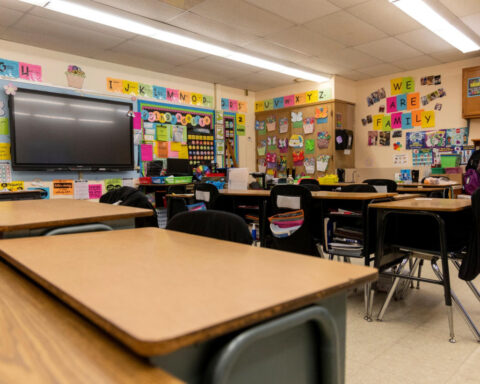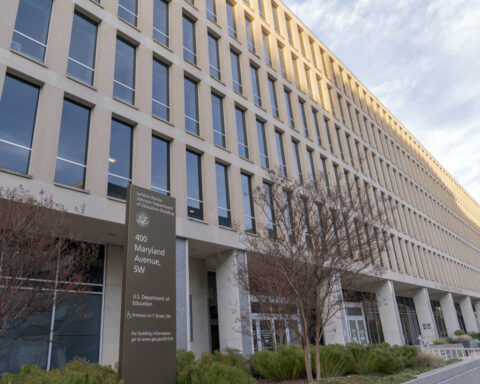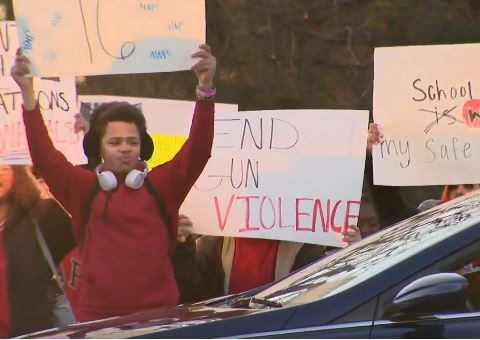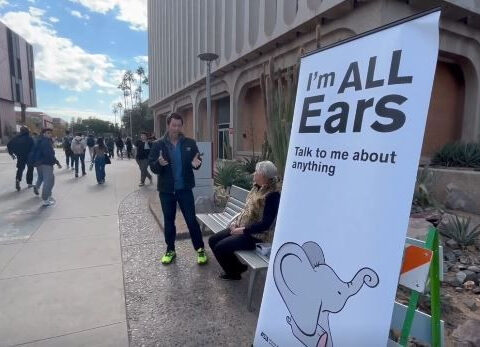The Los Angeles Unified School District canceled its plans to change admission rules for gifted student programs just days before the application deadline, following strong backlash from parents worried about maintaining academic standards.
The district had planned to remove special applications, teacher recommendations, and placement exams for its Individualized Honors Program at Walter Reed Middle School in Studio City and Mark Twain Middle School in Venice for the 2025-26 school year. The new rules require students to qualify for exams to prove they are ready to take on the challenges and excel at their studies.
"Superintendent Carvalho and LAUSD leadership are dedicated to not only supporting rigorous programs in our schools but also growing them within each region while adhering to all legal requirements," a district spokesperson said in a statement to the L.A. Times.
The reversal came after a debate at Walter Reed Middle School, where parents criticized district officials for making changes without seeking community input. Parents especially pointed that the new policy could have been clearer and raised concerns about the future of such programs.
School board member Scott Schmerelson, whose district includes Reed Middle School, called the situation "kind of embarrassing" at the meeting and pushed for a one-year delay of the new rules. He took his concerns to Superintendent Carvalho's office on Friday.
"Making changes that impact students' educational paths must always be done with openness and care," Schmerelson said on Monday.
Board member Nick Melvoin, whose area includes Twain Middle School, shared similar worries. "I understand that the goal may have been to provide more open access to these thriving schools," Melvoin said. "But I am glad the district is taking a step back on these changes as administrators should take time to carefully look at the concerns and work with parents and schools."
The district said the changes were part of a longer effort to make all specialized program applications more visible and accessible on its Choices website. Officials also pointed to a 1994 state law requiring "random, unbiased" student selection when schools receive more applications than they can accept.
Parent Gowri Ramachandran, who has a child in Reed's honors program, welcomed the district's change of heart but raised concerns about poor communication. "I hope the district has really learned from the poor communication that they need to really talk with stakeholders when they're making changes to popular programs," she said.
The debate highlights ongoing tensions between maintaining high academic standards and ensuring fair access to advanced programs. Some parents argue that entrance exam can help in maintaining the classroom rigor as students in such programs work up to three years above grade level in math and study advanced reading materials.
Melissa Pope, who has one child who finished Twain's program and another currently enrolled, warned that loosening standards could harm students. "It will hurt students who could do well in that setting if the program becomes less challenging. It will also hurt students who are put in that setting who might really struggle without need."
Parent Adam Felber said his son was "literally bored to tears" before joining Reed's program, where he learned three years of math in one year. "The thing they lose sight of is that gifted needs are special needs," Felber said.
Other parents backed the proposed changes, saying the current system leaves out many capable students, especially those from less privileged backgrounds. Elaine Waldman, whose child attends Reed's program, called the entrance test "elitist and excluding" and hoped removing it would bring more diversity to the program.
Evelyn Alemán, who helps Latino and Indigenous immigrant families work with the district through her group Our Voice: Communities for Quality Education, pointed out that many Latino parents lack information about these programs. "Often, Latino parents just do not have the information, do not know how the process works," she said. "They also may feel like their child may not be good enough for the program, which means our kids do not even get the chance to try to get in."
The district still needs to share details about student numbers or demographics in the two programs. Both operate within larger middle schools and are seen as bright spots in a district dealing with falling enrollment and pandemic learning gaps.
Parents must pick their preferred schools through the district's Choices website. A district spokesperson said that schools will then tell families about their specific entrance requirements.
John Affeldt, a lawyer at Public Advocates focused on education fairness, believes that school officials should work to improve the quality of education, especially for students of color and those from low-income families. He supports giving more challenges to students while providing help as and when needed.
Many parents suggested that the best way to improve access would be to create similar programs in more neighborhoods across the city. Families still apply for next year's spots as the debate continues, even as entrance rules remain unclear.
"It is still an open question whether they really plan to actually work with parents the right way," said parent Guilan Siassi, whose daughter is applying to several programs.

 Trump's orders take aim at critical race theory and antisemitism on college campuses
Trump's orders take aim at critical race theory and antisemitism on college campuses
 Despite chaos over Trump White House's funding pause, FAFSA forms and student loans still available
Despite chaos over Trump White House's funding pause, FAFSA forms and student loans still available
 Proposed constitutional amendment could fully ban slavery in Kentucky
Proposed constitutional amendment could fully ban slavery in Kentucky
 Mikaela Shiffrin prioritizes recovery over chasing World Cup win No. 100 in return from ski crash
Mikaela Shiffrin prioritizes recovery over chasing World Cup win No. 100 in return from ski crash
 Leader of rebels who toppled Syrian President Bashar Assad is named country's interim president
Leader of rebels who toppled Syrian President Bashar Assad is named country's interim president
 Elaborate burial site of ‘The Ivory Lady’ and her descendants contains more than 270,000 shell beads
Elaborate burial site of ‘The Ivory Lady’ and her descendants contains more than 270,000 shell beads
 Strawberry farmers bounce back after historic snowstorm
Strawberry farmers bounce back after historic snowstorm
 House Republicans fail to clinch deal on tax cuts, despite Trump's urging
House Republicans fail to clinch deal on tax cuts, despite Trump's urging
 The US Open tennis tournament is adding a 15th day by moving to a Sunday start in 2025
The US Open tennis tournament is adding a 15th day by moving to a Sunday start in 2025
 As the Chiefs chase a 3-peat, DeAndre Hopkins and other vets finally get their Super Bowl chance
As the Chiefs chase a 3-peat, DeAndre Hopkins and other vets finally get their Super Bowl chance
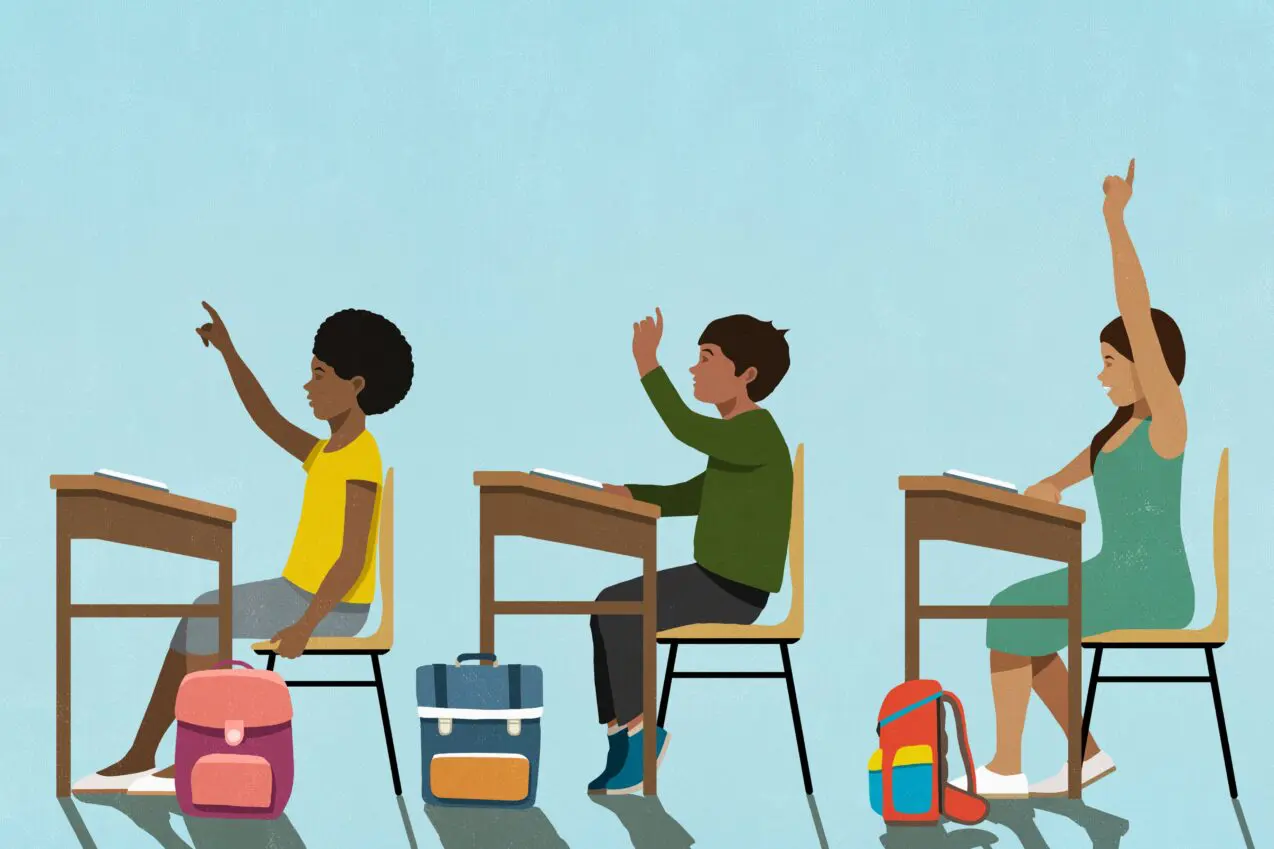 The L.A. Unified School District canceled its plans to change admission rules for gifted student programs just days before the application deadline.
The L.A. Unified School District canceled its plans to change admission rules for gifted student programs just days before the application deadline.
